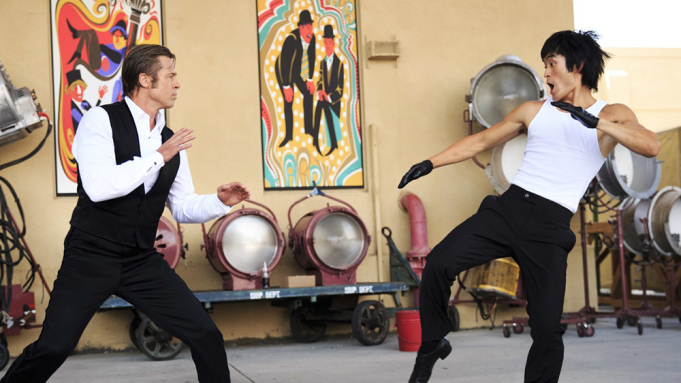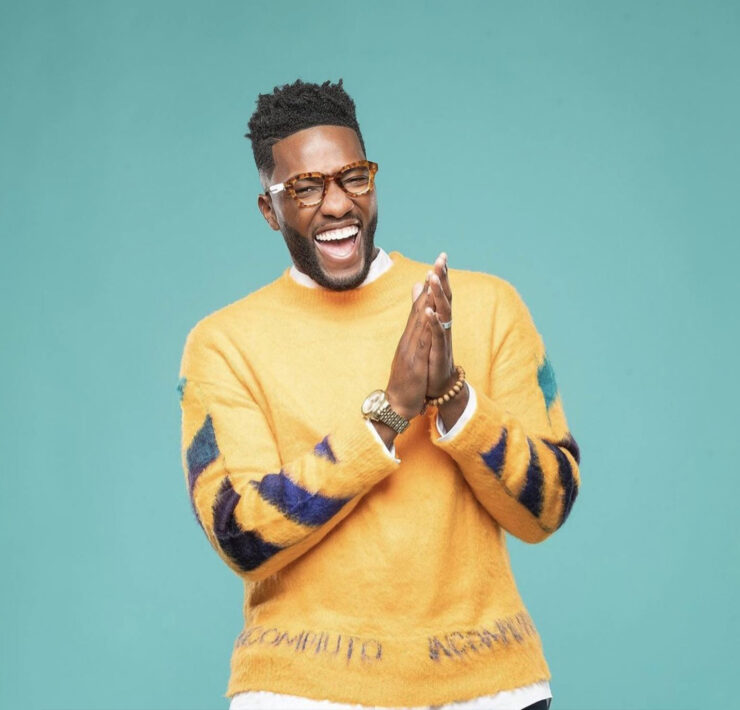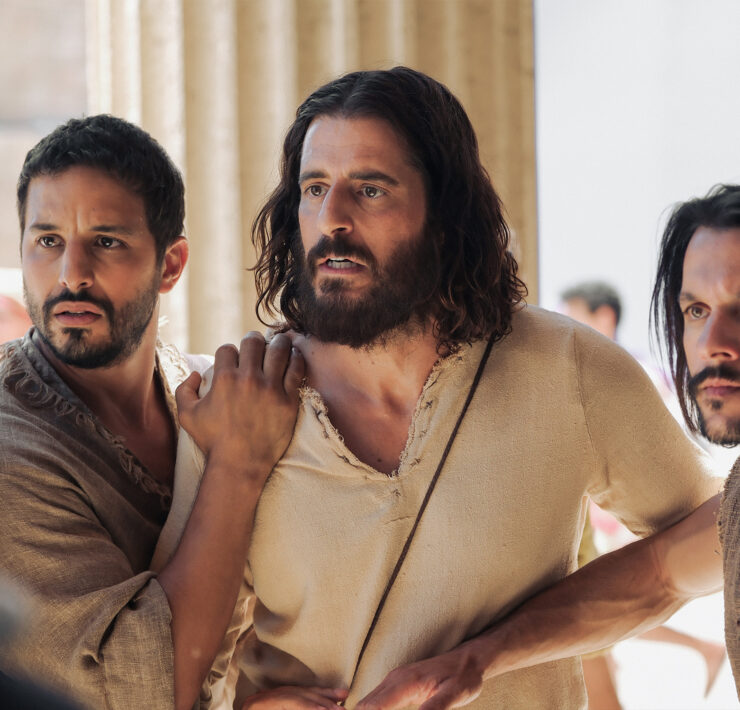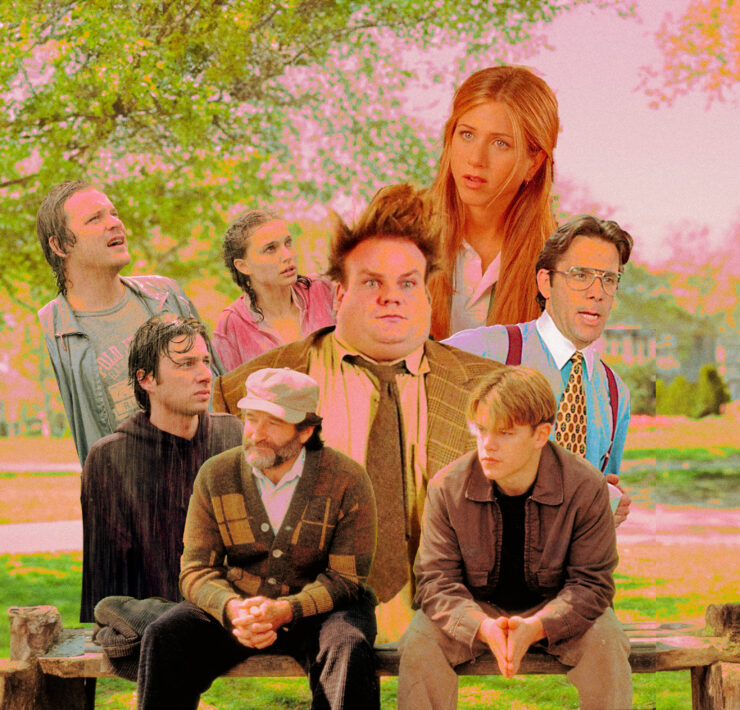
Shannon Lee, daughter of legendary actor and martial artist Bruce Lee, recently wrote an open letter in The Hollywood Reporter, criticizing her father’s portrayal in Quentin Tarantino’s Once Upon a Time …in Hollywood. The letter brings up old and new concerns about fictional depictions of real people — depictions that are only getting more morally complex as technology makes it easier and easier to raise the dead onscreen.
The letter was written in response to Tarantino’s recent comments about Lee while promoting his novelization of the movie. Tarantino stopped by Joe Rogan’s podcast, where he was asked about criticism he’s received over how he depicted Lee in Once Upon a Time, specifically that he was easily bested by Brad Pitt’s Cliff Booth in a petty squabble. Many found the idea of Lee (portrayed as an arrogant jerk in the movie by actor Mike Moh) getting knocked down by Pitt’s blue collar stuntman to be unrealistic, if not flat-out disrespectful to Lee’s legacy. Tarantino dismissed those criticisms, arguing that his portrayal is true to Lee’s hubristic reputation and noting that there was a well-documented feud between Lee and stuntman Gene LeBell on the set of The Green Hornet. LeBell served as an inspiration for Pitt’s character in Once Upon a Time …in Hollywood.
But Shannon Lee has called Tarantino’s depiction “inaccurate and unnecessary to say the least.” She says Tarantino fails to understand the level of confidence and charisma a Chinese man needed in the film industry at the time to find success, and says that she’s “really f***ing tired of white men in Hollywood trying to tell me who Bruce Lee was.”
“I’m tired of white men in Hollywood mistaking his confidence, passion and skill for hubris and therefore finding it necessary to marginalize him and his contributions. I’m tired of white men in Hollywood finding it too challenging to believe that Bruce Lee might have really been good at what he did and maybe even knew how to do it better than them.”
Shannon Lee says her criticisms don’t apply to all white men, noting that she’s “worked with some really wonderful collaborators and partners …But I’ve come across enough of them over the years (and not just in Hollywood) who want to mansplain Bruce Lee to me and use Bruce Lee when and how it suits them without acknowledging his humanity, his legacy, or his family in the process that a bit of a pattern has emerged.”
She also argues for the legacy of her late father, who passed away in 1973 due to an allergic reaction to medication he was taking for cerebral edema. “Mr. Tarantino, you don’t have to like Bruce Lee. I really don’t care if you like him or not. You made your movie and now, clearly, you’re promoting a book,” Shannon Lee wrote. “But in the interest of respecting other cultures and experiences you may not understand, I would encourage you to take a pass on commenting further about Bruce Lee and reconsider the impact of your words in a world that doesn’t need more conflict and fewer cultural heroes.”
Tarantino’s movie takes great liberties with both Lee and another Hollywood icon: Sharon Tate, the actor and wife of classic Hollywood auteur (and current U.S. fugitive) Roman Polanski. In real life, Tate was the most famous victim of the Manson Family. In Once Upon a Time …in Hollywood, Tarantino reimagines a very different fate for Sharon Tate, played in the movie by Margot Robbie.
Tarantino did something similar with Inglourious Basterds, his World War II epic in which Adolf Hitler meets far more …uh, cinematic justice than he did in real life.
It’s hard to know what to make of such depictions. As a filmmaker, Tarantino is one of modern Hollywood’s most technically gifted. He’s also one of our most emotionally mercurial and ethically slippery, with most of his movies involving at least a few explosions of graphic violence that leave you a little unclear on who you’re supposed to be rooting for. Good art can and should raise such morally complicated questions, and Tarantino has made some good art in his day. But as Shannon Lee notes, those waters get more morally complicated when you start messing with real people — especially if it’s against the wishes of those real people’s families.






















